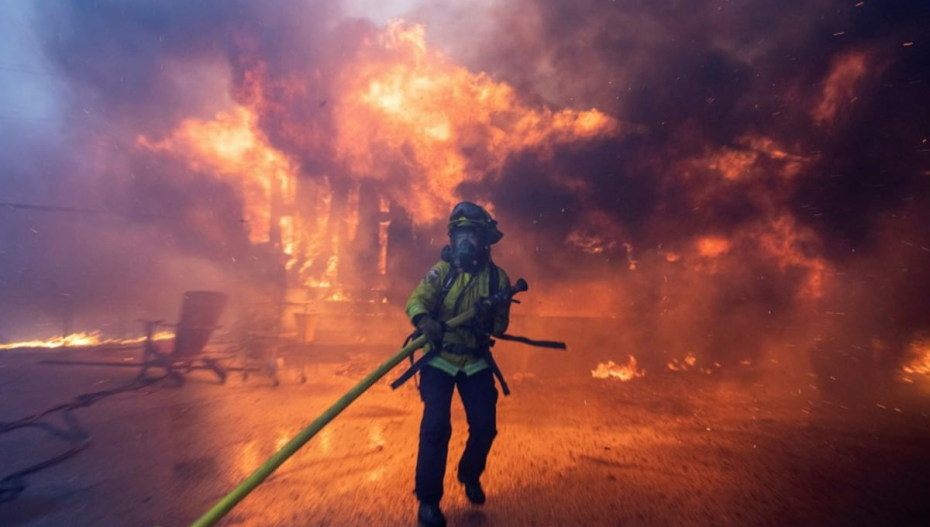The city of Los Angeles is grappling with devastating wildfires that have engulfed half the city, claiming several lives and destroying numerous buildings. Despite the catastrophic fires, the city’s air quality remains significantly better than that of Delhi, India, where pollution levels continue to pose severe health risks.
Days after the fires began, Los Angeles recorded an Air Quality Index (AQI) of 158, while Delhi’s AQI reached a hazardous 373. The stark difference was highlighted by a user on X (formerly Twitter), sparking widespread discussions about the factors contributing to the disparity in air quality between the two cities.
According to IQAir, the AQI in Delhi currently stands at 247, classified as Very Unhealthy. In contrast, Los Angeles, even amidst ongoing wildfires, reported a much lower AQI of 60, categorised as Moderate. The comparison has raised questions about the impact of geography and environmental factors on pollution levels.
Experts have pointed out that Los Angeles benefits from its proximity to the open ocean, which helps disperse pollutants more effectively. Delhi, being a landlocked city, lacks such natural advantages, with no nearby oceans or mountain ranges to aid in improving air quality.
Reacting to the AQI comparison, one user noted, “That’s because wind speed is high [in LA], and particles get carried away quickly. But wind speed is low in Delhi.” Another commented, “The past few months have been really terrible in terms of air quality in Delhi. Usually, things start improving by this time in January, but there is still no sign of better air quality.”
Highlighting the role of geography, an individual wrote, “LA is next to the open ocean, while Delhi is a few hours away from mountains and miles away from the ocean.” Another added a satirical take, saying, “Walking around my neighbourhood this evening, the air took me back to the bustling streets of Old Delhi. Diwali is in the air.”
Meanwhile, in response to rising pollution levels, the Commission for Air Quality Management (CAQM) in Delhi-NCR has reintroduced Stage 3 of the Graded Response Action Plan (GRAP). Measures under Stage 3 include restrictions on the use of BS-III petrol and BS-IV diesel vehicles in an effort to curb pollution.
Also Read: Guj CM Bhupendra Patel Inaugurates International Kite Festival 2025 in Ahmedabad













